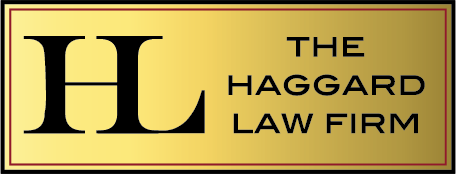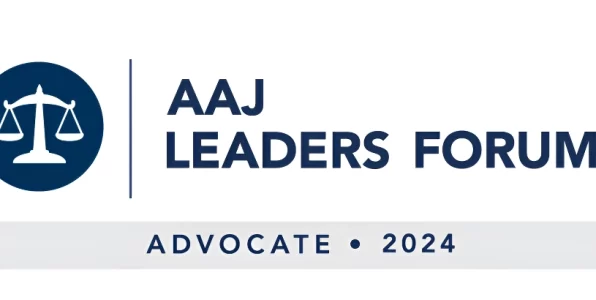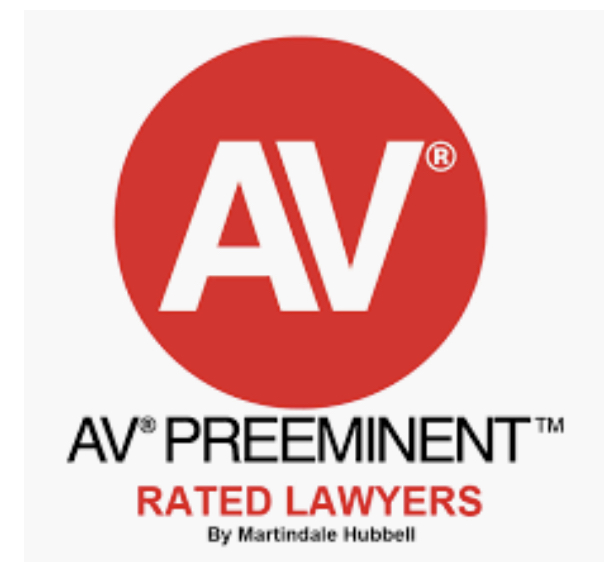In this article, The Haggard Law Firm’s Jason Brenner discusses a variety of topics including why trial attorneys should always employ a philosophy that every case should be prepared to go to trial. He says it is a mindset that many trial attorneys don’t employ.
Brenner is part of the team that recently obtained a $12 million verdict in a wrongful death, negligent security case following a 5 day trial (click to learn more about the case). Click here to learn more about the case
To learn more about The Haggard Law Firm‘s Jason Brenner, click here
The Truth I Never Knew about Direct and Cross-Examinations
Entering the legal field with the desire to become a trial attorney is a daunting endeavor. There is only one place where a young lawyer can establish himself or herself as a trial attorney—in the courtroom. Trial practice has almost become a misnomer in today’s world. The firm where I have been privileged to practice is made up of an endangered species of the trial attorney. I revel in the “war stories” about them trying a case on Monday and preparing for the next one on Friday. Nowadays, the majority of time spent in court is in motion practice.
The current status of trial practice creates an interesting conflict for young, aspiring attorneys in their attempt to develop trial skills. In the almost six years I have been practicing, I have been trial support on two civil jury trials and second chair on an additional two. The first trial in which I participated as second chair was a stroke of fortune and an eye-opening experience. Once I was in the courtroom in this role, I understood the purpose and importance of direct and cross-examination, but, most important, I understood the difference between direct and cross-examination in discovery and at trial. The primary focus of this article is to illustrate the principles of direct and cross-examination that have been taught to me.
FOR A FREE CONSULTATION, CLICK HERE
Cross-Examination: L
I was taught from the beginning of my career that every case should be prepared to go to trial. This philosophy seems obvious, but many trial attorneys employ the exact opposite philosophy. This is not the result of inadequate representation or complacency. It happens because the majority of cases settle prior to trial. It is an operation of the subconscious. There are many other consequences that result from not employing the philosophy of preparing for trial in every case, but those are not the subject of this article.
When implementing this philosophy, employ the following fact pattern: Imagine you are meeting with your trial partner a few weeks prior to picking a jury. You are setting your order of proof, and you begin discussing specific facts about your case. You are the lead attorney and excited about going to trial. Your trial partner waits for a break and says, “You mentioned the defendant did X. Who is going to testify to that?” If you did not plan for a witness to prove that fact, you will realize the case you have been lead attorney on for months, possibly over a year, was prepared in order to obtain a settlement.
To avoid being in that position, you must force yourself to prepare beyond the facts that led to you represent your client in the first place. Furthermore, your cross-examination outline is not just a checklist of points to cover. Your preparation for cross-examination is to develop theories and questions that will elicit the answers you want, not solely ones you need. Finally, and perhaps most importantly, understand the rules of evidence in order to lay the foundation for the facts you are going to prove.
In addition, use depositions to establish control in the litigation and create impeachment for trial. It is your job to let the witness and opposing counsel understand that you know every answer and why they are saying it, and there is nothing they can do about it. The first deposition I schedule is the most important for my case. In my negligent security cases, this is typically the property manager of an apartment complex. In Florida, the landowner has a non-delegable duty and cannot transfer responsibility to the property management company, and because of that, the property manager will assist in establishing the defendant’s liability. Also, property management companies are hired to handle the day-to-day operations, including security issues. A failure of the property manager is a failure of the landowner.
By way of example, I represented a client who was shot at a restaurant bar by another patron. My client was on the interior of the business, but the shooter fired the shots while standing in the common area of the strip mall, an area within the sole possession and control of the landlord. This fact was important from a legal standpoint for purposes of liability. To succeed on our claim, I needed to establish that the potential of our incident, a shooting on the premises, was foreseeable to the landowner. One way to do this was to show that the defendant “knew or should have known” of a prior crime occurring on the property and the nature of the prior crime made my client’s shooting foreseeable.
Prior to taking the landlord’s deposition, I obtained and reviewed police reports associated with the strip mall. One of these reports contained a narrative from a business a few doors down from where my client was shot, describing blood on the exterior wall. The narrative also noted that the business owner contacted the property owner to inform him of the incident. The report further indicated that an officer made contact with the landowner who admitted to being notified and responded by having his maintenance supervisor paint over the wall. The officer inquired as to why the owner would cover up what appeared to be human blood to which the owner responded, “I don’t know, I didn’t think it was a big deal.”
Once I discovered this information, I needed to decide whether to bring it up during the owner’s deposition or wait to use it at trial. I elected to use the information during the deposition because I did not want to give the defense attorney time to locate the report and plan a response. Also, it was important that I knew how the owner would respond to my questions. If he was going to be honest about the prior incident, the impact of the report would be minimal. Knowing that my questions had to be clear and concise, and leave no room for form objections, I used the landowner’s statement as follows:
Q: As a landowner, is the safety of the patrons important to you?
Q: In fact, you are in sole control of the property in terms of the parking areas?
Q: You are also in sole control of the sidewalks bordering the storefronts?
Q: Meaning, the responsibility to maintain these areas rests with you?
Q: And if prior to this incident, crime was occurring in the areas you were responsible for, you would want to know about it, right?
Q: Because if you were made aware of crime occurring in the areas for which you were responsible, you would address it, wouldn’t you?
Q: But you would agree that you need to obtain that information to determine the best way to address the potential crime problem?
I asked the landowner about 10 to 15 more questions establishing that it was unacceptable to allow crime to occur on the property; that he would not ignore crime he knew about; that if one of his tenants’ businesses was causing crime, he would address it as well; and that he took crime occurring on the property seriously. Then I moved into the narrative of the report and established that he would take a report about blood on the wall seriously and that he would never instruct an employee to cover up blood without speaking to the police. I also established that an event like the example we spoke about had never occurred prior to my client being shot.
Once I had him commit to the above and that nothing serious occurred prior to my client being shot, I confronted him about the report. At this point, there was nothing the landowner could say that would change his testimony. This one statement had accomplished the goal I set out to attain. If the case would have gone to trial, his video deposition would have been the first testimony the jury would have heard. The case was over.
Had I waited for trial, the impact I intended would have been lost. By the time of trial, the defense lawyer would have had the report and addressed the issue. Also, I would have found myself in a position of not knowing the landowner’s answer. The lesson I learned from this case was that the element of surprise is not always maintained by concealing the damaging evidence until trial; instead, it should be used in the most opportune manner to obtain the desired result. Waiting to strike could put you in that position, and if you lose that battle, you lose the jury.
Direct Examination: The Witness Is a Reflection of Your Client’s Case
Direct examinations involve questioning non-hostile witnesses you call in your case in chief. Direct examinations do not allow for leading questions; therefore, preparation is imperative. You must identify the necessary testimony and prompt the witness to provide it. For direct examinations, unlike cross-examinations, a helpful witness need not necessarily be deposed during litigation. If the strategic decision is made not to depose a witness, but rather call the witness at trial, there are other ways to establish the witness’s testimony and reduce the risk of a memory being lost or some other circumstance where it changes. Taking a sworn statement close in time to the incident, for instance, allows you to establish the facts without having to depose the witness. Video statements also have the same impact. Once a witness has provided an account of his or her knowledge, you remove the fear that the witness will change his or her story.
Direct examination should turn the jury’s focus on the witness, not the lawyer. The direct you develop is designed to accomplish this goal to build credibility and avoid distractions. A young lawyer who is eager to be in the courtroom and put on a case runs the risk of losing sight of the ultimate goal, a verdict in the client’s favor. The witness is up on the stand for a reason; make sure the jury knows why.
When you need to call a third-party witness to testify on your client’s behalf, do not lose sight of how catastrophic serving a trial subpoena on that witness can be. Forcing someone to take time out of his or her life to come and testify can be difficult. Keep in mind how doing so may affect the witness’s reaction on the stand. Having respect, understanding, and appreciation of what you are asking of the witness can go a long way.
I was involved in a case where trial was continued several times. There were only two independent witnesses available to testify about the night the incident occurred. Both were deposed prior to trial. One witness did not have anything in terms of testimony to establish facts we needed for our case, but the other did. When the trial finally took place, the useful witness justifiably expressed the sacrifice his participation called for. We expressed our appreciation for the inconvenience and acknowledged the value of the witness’s time. This, I believe, ultimately aided us when the matter was finally tried. The witness established the necessary facts and corroborated our client’s testimony. Had I treated this vital witness’s sacrifice with indifference or simply failed to take the time to advise him that I understood how inconvenient his participation may be for him, the outcome might have been different.
Conclusion
Being a young lawyer can be a daunting endeavor. It is true that there is no substitute for experience; however, I am hopeful that sharing my experiences will assist other young attorneys develop their trial strategies and skills. As you navigate through your own experiences, keep the principles of preparation, controlling your case, and working every case as if it is going to trial at the forefront of your mind.
Jason Brenner’s article: The Truth I Never Knew about Direct and Cross-Examinations, was originally published on the American Bar Association’s website in the Young Advocates section.
To read the entire article visit the ABA site at: http://apps.americanbar.org/litigation/committees/youngadvocate/articles/summer2016-0716-truth-i-never-knew-about-direct-cross-examinations.html










